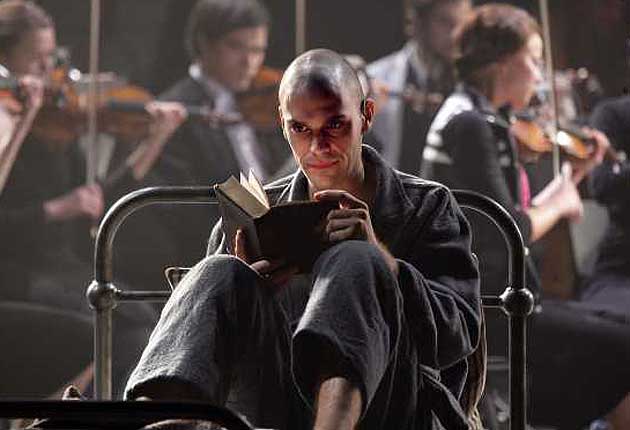Every Good Boy Deserves Favour, Olivier, National Theatre, London

Tom Stoppard once said, apropos of political commitment, that public postures have the configuration of private derangements. His 65-minute psychiatric hospital fantasy, with a score by André Previn – the title is a mnemonic for the arpeggiated musical ninth, EGBDF – might be an explanatory satire of this aphorism. But the piece, though slight, is rooted in the real lives of the imprisoned Russian dissidents Victor Fainberg and Vladimir Bukovsky, and in one of the few long speeches in it, the prisoner Alexander (Joseph Millson) recounts the horrors of the mental hospitals and labour camps with dispassionate force, like a reckoning.
Even in a transformed world since the play was first seen briefly in Trevor Nunn's 1977 production in the Festival Hall, and later at the Mermaid, where Ian McDiarmid and John Woodvine succeeded John Wood and Ian McKellen as the "deranged" prisoners, nobody could think there was nothing still pertinent about the subject matter.
The Olivier stage is populated with the young players of the Southbank Sinfonia whose orchestral effusions invade the imagination of imprisoned Ivanov (Toby Jones), wistfully tinkling on his triangle. His cellmate Alexander is impervious to the intrusions, but the hospital doctor (Dan Stevens) really does play in an orchestra.
In the background, a teacher (Bronagh Gallagher) educates Alexander's son Sacha (inexplicably played by an actress, Bryony Hannah) in the principles of geometry, and this language fuses with musical terminology and political chop logic. It's a brilliant, gossamer conceit, but the NT production by Felix Barrett and Tom Morris remains curiously earthbound.
Previn's score is a cunning arrangement of Soviet styles, representing the imaginative life as well as the authorised. Stoppard's doctor insists that the only hunger strike they've had before was about the food, but Sacha wants his/her father to be brave and tell lies; his rigidity is ironically seen as a form of compliance in the system.
"The bad old days" refer to the Stalinist era but, as Stoppard reminds us in a programme note, those days are here again, with political assassination almost commonplace in Putin's Russia. So the point and poignancy of EGBDF are still valid. I'm not at all convinced that the performance embodies that darkly comic purpose.
To 25 February (020-7452 3000; www.nationaltheatre.org.uk
Join our commenting forum
Join thought-provoking conversations, follow other Independent readers and see their replies
Comments
Bookmark popover
Removed from bookmarks